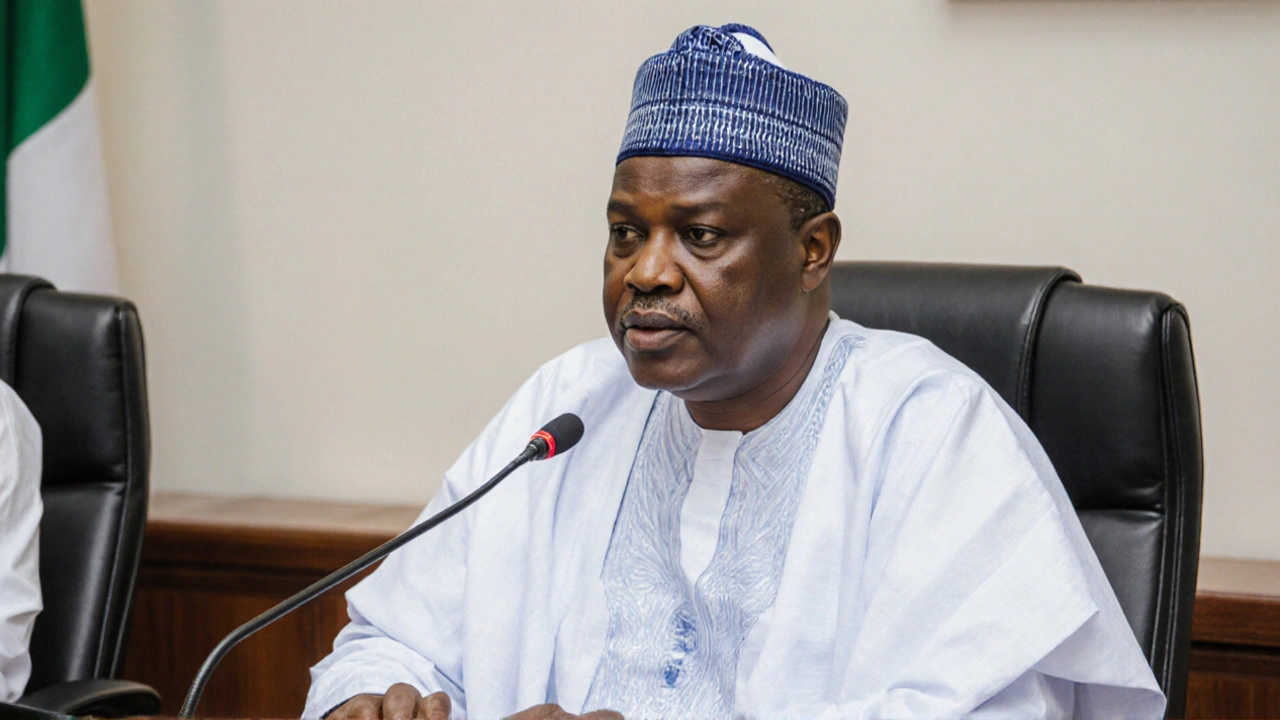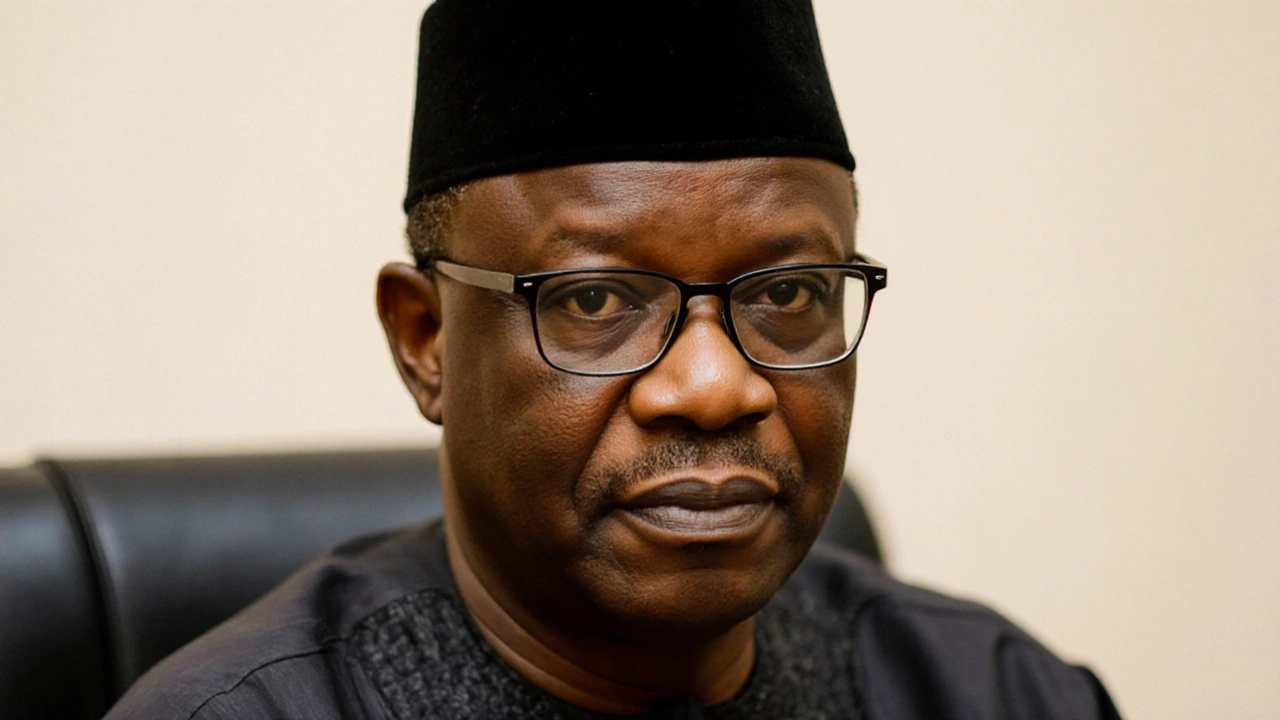Why Youth Matter in African Electoral Processes
Prof. Mahmood Yakubu, the head of Nigeria’s Independent National Electoral Commission, addressed a packed hall of International Affairs and Peace Studies students at Civil Service University on April 15, 2025. In his speech, titled "Democracy and Peaceful Elections in West Africa," he drove home a simple truth: without the energy, numbers, and integrity of young people, Africa’s elections cannot function smoothly.
Young Africans make up the lion’s share of registered voters—over 60% in many countries—and they also fill the bulk of temporary election‑staff positions that election management bodies (EMBs) rely on during vote‑day. Yakubu pointed out that this dual presence means youths are not just spectators; they are the backbone of the whole electoral machinery, from setting up polling stations to counting ballots.
He stressed that any weakness in this chain—whether a careless registration error or a biased poll‑worker—can snowball into larger disputes. The chairman cited recent contests in Ghana and Kenya where irregularities in voter rolls triggered prolonged legal battles, underscoring the high stakes of every single registration act.

Calling Out Misinformation and Promoting Civic Responsibility
Beyond the logistical side, Yakubu turned his attention to the digital arena where many youths spend their time. He warned that the spread of unverified rumors on social media has become a new weapon against credible elections. "Don’t be a merchant of fake news," he said bluntly. "If you can’t verify a story, don’t share it."
He urged students to see themselves as citizen‑journalists tasked with reporting election developments truthfully. This means checking sources, cross‑referencing official INEC statements, and resisting the urge to amplify sensational but false claims. In a continent where a single misleading tweet can spark unrest, responsible online behavior is as vital as marking a ballot correctly.
Yakubu also highlighted the importance of patriotism and accountability during voter registration—one of the most sensitive phases of any election cycle. He urged young registrars to approach the task with "sincerity, patriotism, and a sense of responsibility," noting that errors at this stage can disenfranchise entire communities.
To illustrate the positive impact of youth engagement, the chairman referenced a pilot program in Sierra Leone where university volunteers helped digitise voter databases, cutting registration errors by 30% in just one year. The success, he argued, showcases how youthful innovation can directly improve electoral integrity.
Wrapping up, Prof. Yakubu delivered a hopeful yet firm message: democracy is a system chosen by the people, and it needs constant nurturing. Every young African, he said, has a role in deepening democratic institutions—whether by volunteering at polling stations, speaking out against fake news, or simply exercising the right to vote responsibly. His visit to The Gambia forms part of a broader West African push to lock in peaceful, credible elections for the next generation.
peaceful elections are not a distant ideal; they are a daily practice that needs the fresh perspective, energy, and vigilance of Africa’s youth.

Prince Raj
September 26, 2025 AT 02:40Reading Prof. Yakubu’s address reminded me that the electoral ecosystem hinges on a synergistic mesh of demographic vigor and procedural robustness. The data pipeline that feeds voter registration figures must be calibrated with high-fidelity analytics, otherwise the downstream micro‑validation stages become a bottleneck. In practice, deploying dynamic integrity checks-a blend of cryptographic hash verification and probabilistic anomaly detection-can slash registration errors dramatically. Moreover, the human factor cannot be abstracted; youth poll‑workers bring not just manpower but adaptive cognitive bandwidth that mitigates real‑time contingencies. When you layer machine‑learning–driven risk scoring on top of on‑ground intelligence, you essentially create a resilient lattice against fraud vectors. This is why the INEC’s call for digital literacy among registrars is a strategic imperative, not a rhetorical flourish. The Sierra Leone pilot you cited is a textbook case of how open‑source data stewardship can compress error rates by thirty percent within a single election cycle. Scaling that model across the sub‑regional bloc would require interoperable APIs, standardized schema, and federated governance. It also demands a cultural shift: young cadres must internalize the ethics of data provenance, treating each ballot as a node in a trust graph. Let’s not forget the misinformation vector-bots and deep‑fakes can corrupt the perception layer, eroding confidence before the polls even open. Counter‑measures like real‑time fact‑checking dashboards and decentralized verification crowdsourcing can inoculate the electorate against viral falsehoods. The crux is that every stakeholder-tech firms, civil society, and the registry apparatus-must converge on a shared protocol stack. Only then can we achieve the high‑availability, fault‑tolerant election infrastructure we need for sustainable peace. In short, youth are not merely ancillary; they are the architects of the next‑gen democratic fabric, and their empowerment must be underpinned by both cutting‑edge tech and principled stewardship.
Gopal Jaat
September 26, 2025 AT 16:33The youth truly are the backbone of our democratic process.
UJJAl GORAI
September 27, 2025 AT 06:26Ah, the ever‑so‑noble crusade of youth engagement-definately a saga worthy of Shakespearean tragedy. One might argue that the very notion of "responsible citizen‑journalism" is a quaint relic from the pre‑digital era, yet the professor persists in preaching it as if it were a fresh revelation. It's almost charming how the rhetoric blends earnest exhortation with a dash of paternalism, as if the continent needs a babysitter in a lab coat. Nevertheless, the underlying data on registration errors does lend some credence to the call for technocratic intervention. If only more young people could swallow the bureaucratic pill without gagging on the paperwork.
Satpal Singh
September 27, 2025 AT 20:20While the tone may seem theatrical, the core message aligns with established best practices in electoral administration. Accurate record‑keeping and transparent communication are foundational pillars, irrespective of age demographics. Encouraging youth participation should therefore be accompanied by robust training modules that emphasize procedural exactness.
Devendra Pandey
September 28, 2025 AT 10:13It's worth noting that enthusiasm alone cannot compensate for systemic flaws embedded in the electoral framework. Overreliance on youthful volunteers may inadvertently perpetuate a cycle of ad‑hoc solutions. A balanced approach, integrating seasoned professionals with fresh minds, would likely yield more sustainable outcomes.